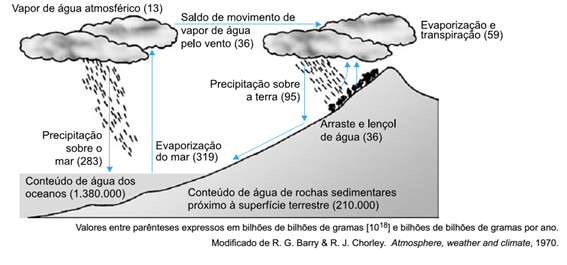Decomposers are living beings responsible for recycling organic matter in the food chain.
Decomposers are represented by fungi, bacteria and some protozoa.
Decomposition is the result of the action of decomposers.
The decomposition process consists of the disintegration of dead organic matter (dead bodies, removed parts of the body and feces), carried out by physical and biological agents. During decomposition, complex organic molecules are degraded and turned into carbon dioxide, water and inorganic nutrients.
Decomposers in the Food Chain
Decomposers work on all trophic levels gives food chain.
Decomposers come into action after the death of producers and different types of consumers. THE biomass, feces and excreta (organic matter) of these beings serve as food for fungi and bacteria, from which they obtain nutrients and energy.
Decomposers and detritivores feed on organic matter.
Decomposing Beings x Detritivorous Beings
Detritivorous beings are often considered decomposers because they also degrade organic matter.
However, detritivores are a specific type of consumers, represented by earthworms, vultures and insect larvae, which transform the complex organic molecule into a simpler organic molecule. They facilitate the action of decomposers.
Thus, the decomposers, when carrying out decomposition, promote the total degradation of the organic molecule, transforming them into simpler molecules, in general inorganic.
For example, we can use the carbon cycle. Producers' biomass carbon can be reused in two ways:
(1) undergoes the action of decomposers and is transformed into carbon dioxide, being returned to the environment, where it will later be absorbed by autotrophic beings;
(2) is transferred to herbivores when they feed on producers.
Thus, we saw that decomposers return nutrients to the environment, in a simpler form that can be used again by other organisms.
Importance of Decomposers
Decomposers return nutrients to the environment, so they can be reused by other organisms to produce new organic molecules.
By transforming organic matter into inorganic material, which will be used by the producers, the decomposers restart the cycle. For this action in the nutrient cycling, decomposers are essential for the maintenance of ecosystems.
Learn more, read also:
- food web
- Biogeochemical Cycles
- Food Chain Exercises


